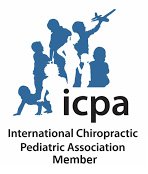Does your jaw click, pop, or ache every time you chew, speak, or yawn? Well, this might be a TMJ (temporomandibular joint) problem.
TMJ pain can make even the simplest tasks feel unbearable, turning mealtimes and conversations into sources of frustration. Affecting millions of Americans, TMJ disorders often go untreated. But there is hope, and relief is possible!
While chiropractic care is typically linked to back and neck pain, it also offers a powerful—but often-overlooked—solution for TMJ discomfort. More over, the effects of TMJ disorders aren’t limited to jaw pain—they can disrupt your sleep, eating habits, and overall well-being. So, how can you get on the road toward finding relief? Keep reading to find out.
What Causes TMJ Pain?
The temporomandibular joint (TMJ) is one of the most complex and frequently used joints in the human body. This joint connects your jawbone to your skull on both sides of your face, working like a sliding hinge that enables you to talk, chew, and yawn. The joint consists of bones, muscles, tendons, and cartilage, which all work together to allow you to perform these actions.
But what makes this joint particularly unique is its ability to move in multiple directions—up and down, side to side, and forward and back—while maintaining precise coordination with the joint on the opposite side.
At the same time, the complexity of the TMJ makes it vulnerable to various problems. The joint contains a small disc that acts as a cushion between the bones, similar to the discs in your spine. This disc can become displaced or damaged, leading to pain and dysfunction. Additionally, the muscles controlling jaw movement extend from your temples down through your cheeks, connecting to multiple points on your skull and facial bones.
TMJ pain often develops when this delicate system faces disruption. Common causes include:
- Misalignment of the jaw or teeth, which can force the joint to work harder than necessary during basic functions
- Teeth grinding (bruxism), especially during sleep, placing excessive stress on the joint and surrounding muscles
- Poor posture leading to neck strain, particularly forward head posture that disrupts the natural alignment of your spine and jaw
- Stress and tension in the facial muscles, often related to anxiety or concentrated mental work
- Arthritis affecting the joint, which can damage the protective cartilage and cause inflammation
- Previous jaw injuries or trauma that may have altered the joint’s natural movement patterns
- Disc displacement within the joint, affecting smooth movement and causing painful clicking or popping
The pain typically manifests as tenderness in the jaw, face, neck, and shoulders. Many people experience difficulty opening their mouth fully, hear clicking sounds when chewing, or feel their jaw temporarily lock in an open or closed position. Some individuals also report recurring headaches, ear pain, or ringing in the ears due to the TMJ’s proximity to these structures.
Can a Chiropractor Help With TMJ Pain?
Chiropractors understand that your jaw doesn’t operate in isolation—it’s actually connected to an intricate network of muscles, nerves, and joints that extend through your neck and upper spine. When one part of this system is misaligned, it can create a domino effect of tension and dysfunction.
In fact, the nerves that control your jaw muscles originate in your upper cervical region. Any misalignment in this area can affect nerve function and muscle coordination around your jaw. Luckily, chiropractors are specially trained to identify these connections and address them through targeted adjustments.
Through precise adjustments, chiropractors can:
- Address underlying neck and spine misalignments that may contribute to TMJ problems by restoring proper vertebral alignment.
- Release tension in the muscles surrounding the jaw joint using specialized techniques that focus on trigger points and muscle tension.
- Improve overall jaw mobility and function through gentle mobilization techniques specific to the TMJ.
- Restore proper nerve communication between your brain and jaw muscles by removing interference in the nervous system.
- Reduce inflammation in the joint area through proper alignment and improved blood flow.
Your local Plano chiropractor can also provide guidance on proper jaw positioning and habits that support long-term joint health. Overall, the goal is not only to alleviate current symptoms but to address the root causes of TMJ dysfunction for long-term relief. Your chiropractor will develop a personalized treatment plan that takes into account your specific symptoms, lifestyle factors, and overall health goals.
Ready to finally find relief from TMJ aches and pains? Our team at Keystone Chiropractic is here to help. Book your appointment today to discover the power of chiropractic care.





